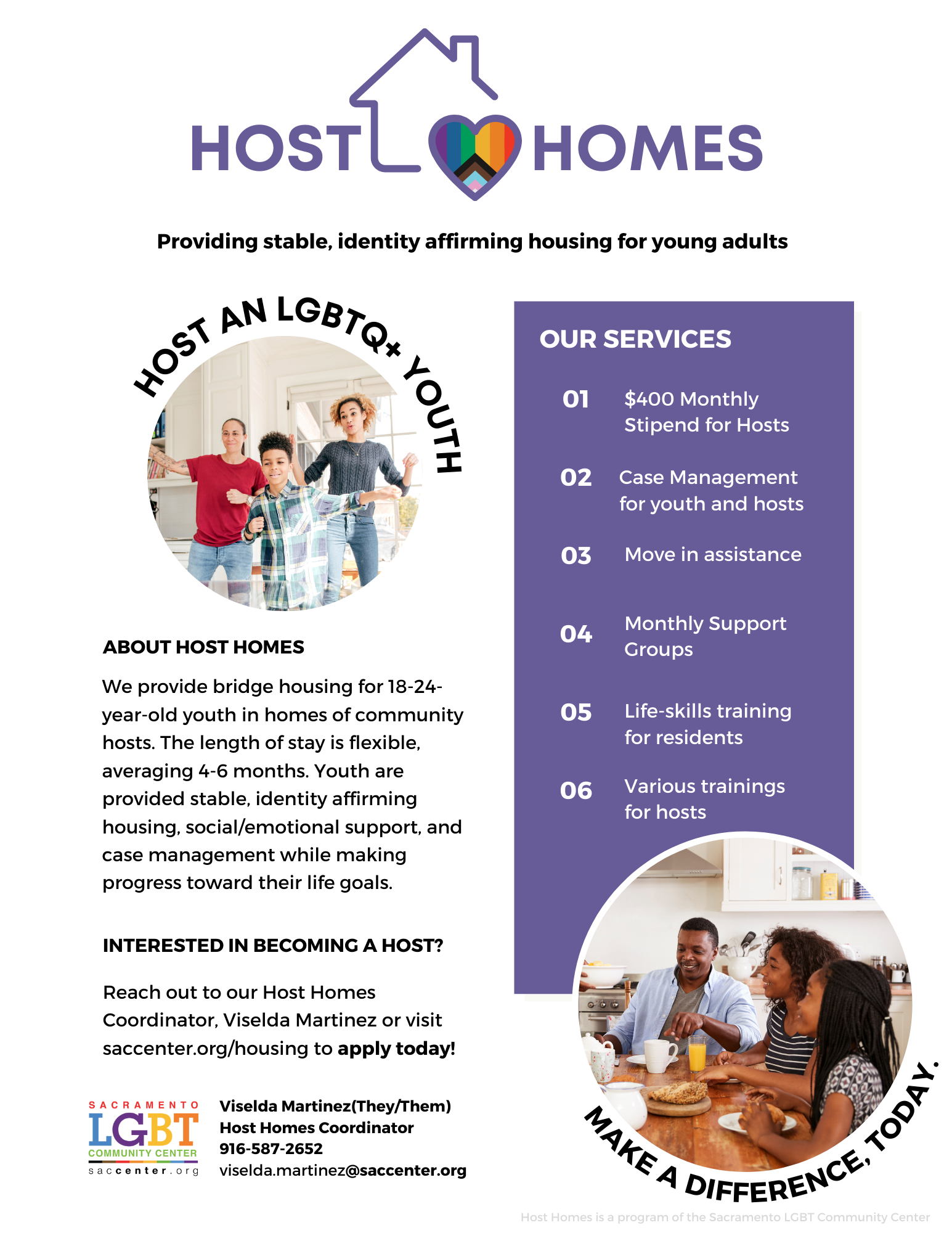Sacramento County released its findings from the 2022 Point-In-Time (PIT) count this past week. The number of people experiencing homelessness on a night in Sacramento County rose by 67 percent. According to results released by Sacramento Steps Forward (SSF).
A total of 9,278 individuals experiencing homelessness were identified in the count, and based on information gathered regarding the LGBTQ+ community:
- Approximately 116 adults identified as transgender in 2022, almost four times more than in 2019 (116 vs. 25), and approximately 88 adults identified as gender non-conforming compared to only 16 who did so in 2019.
- Transitional Aged Youth (ages 18 to 24) were much more likely to identify as transgender or gender non-conforming than other age groups.
- Approximately eight percent (8%) of general adults (18 to 69) identified with a Gay/Lesbian, Bisexual, or another non-heterosexual sexual identity.
- The estimated number of transitional age youth experiencing homelessness in Sacramento increased by 53 percent since the 2019 PIT count (636 vs. 415)
- Approximately 111 youth identified as Gender Non-Conforming or Transgender, or 17.5% of youth interviewed.
- Almost a third (31%) of youth identified as Gay/Lesbian, Bisexual, or another non-heterosexual sexual identity.
“The data is clear; it’s not just funding, but also the intention needed to solve the intersectional challenges that homelessness presents,” says Robynne Rose-Haymer, Acting Chief Program Officer. “The Sacramento LGBT Community Center strives to address the varying root causes of homelessness while providing respite and relief amid this genuine epidemic.”
While not surprised by the increase in homelessness, the Sacramento LGBT Community Center (the Center) is taking steps to combat homelessness in Sacramento.
- Advocating at the City, County, and State levels to drive the need for policies that support the development of more housing projects and address the immediate needs of folks experiencing homelessness.
- Respite services for both youth and adults while participating in coordinated access via the Continuum of Care in the Rapid Access Program Solving program
- The Center’s Economic Justice Program helps community members connect to livable-wage employment opportunities to help pay for the rising cost of housing in Sacramento.
- Operate a continuum of housing programs for transition-age youth from emergency to transitional housing opportunities, up to 24 months.
The Center also recognizes the need for more resources, services, and education that’s still needed on top of what is already provided, including:
- More landlord engagement and education.
- Dedicated staffing for building relationships to identify more opportunities for safe and stable housing transitions.
- Increased relationship building in our competitive housing market.
- Finding Hosts for our Host Homes program, which helps provide housing and shelter to our youth population experiencing homelessness.
- And increasing funding opportunities to help offset barriers created because of the rising cost of living.
“Youth homelessness leads to adult homelessness leads to youth homelessness. The vicious cycle of homelessness has been interrupted for too long, and everyone in Sacramento is witnessing the result of primarily short-term-only solutions,” says Koby Rodriguez, Acting Chief Executive Officer. “The Center is committed to listening to community members impacted by homelessness, addressing the root causes of homelessness, collaborating on sustainable initiatives, and expanding our portfolio of services to make a transformative impact on the region.”
If you’re reading this and you’d like to get involved by volunteering during our respite hours or participate as a Host Home family for an LGBTQ+ youth experiencing homelessness, please contact us at info@saccenter.org.


